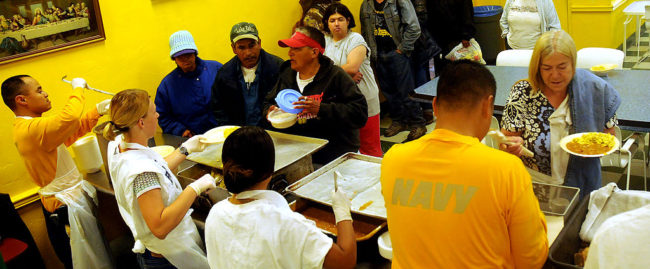I had the pleasure of being the keynote speaker at Doxacon (a scifi/fantasy + theology conference). I got to speak about the different kinds of magic on display in Diane Duane's Young Wizards series and Lev Grossman's The Magicians trilogy. And I managed to find an excuse to bring up Matthew Crawford's Shop Class as Soulcraft, too.Diane Duane's Young… Read More
Tag: Bookshelf

Diversity, Leaky Roofs, And Aging Priests: The Changing Catholic Church
"The Catholic Church in America is slowly catching up with its shifting flock. The recent classes of ordinands are more diverse and better mirror the multicultural populations they will serve; painful but necessary mergers and closures are taking place; and churches are opening and expanding in the South and the West. But if Catholic Parishes… Read More

Books on deck for me for 2017
Getting married meant I read a lot fewer books this year than usual. According to my Goodreads account, I read 195 books this past year (that comprised a total of about fifty-eight thousand pages). And eleven and a half of those were books I specifically set out to read in last year's Books on Deck post. (Ok,… Read More

My Favorite Books of 2016
These are my favorite books I read for the first time in 2016 (here's last year's list). Well, technically, my favorite books I read from December 2015-November 2016, since I always put this list together in time for people to grab Christmas gift ideas. And, if you're looking for other book recommendations from me, you… Read More

‘You Are What You Love:’ Accentuate the Ordinary
"In Smith’s diagnosis, one of the ways we neglect God is by refusing his humblest gifts. We might meditate on the readings at church, do a little devotional reading at home, and keep tabs on blog posts online, but we run the risk of 'approach[ing] discipleship as primarily a didactic endeavor—as if becoming a disciple… Read More

Give Us This Day Our Daily Hedgehog
"After Aslan is resurrected [in The Lion, The Witch, and the Wardrobe], he travels to the witch’s castle and frees the animals she had turned to stone. A lion he rescues is so overwhelmed by this grace that he doesn’t quite know what to do with himself. The most pleased of the lot was the… Read More

Screwtape in Vegas: Addiction & Acedia
"Slots, video poker, and other gambling machines are often described as games, but Schüll’s description [in Addiction by Design: Machine Gambling in Las Vegas] makes it clear how completely play is lacking from these terminals. Some machines allow gamblers to “autoplay”: they simply insert their money, press a single button, and let the machine spin… Read More

The Little Way of Terry Pratchett
"Reading [Terry Pratchett's Granny Weatherwax] as an atheist, it was the first time I’d seen a definition of sin that didn’t sound like, as Francis Spufford describes our modern use of the word in Unapologetic, a kind of “enjoyable naughtiness” that seemed mostly to do with sex or very expensive chocolates. But the kind of sin… Read More

Both/And Philanthropy
"Jeremy Beer endorses local charities [in The Philanthropic Revolution: An Alternative History of American Charity], which can best further what he sees as the primary purpose of philanthropy, 'to increase opportunities for and strengthen the possibilities of authentic human communion.' In contrast, William MacAskill [in Doing Good Better] cuts ties with a charity focusing on… Read More

Against Fairness
"Stephen T. Asma’s book is titled Against Fairness, but it doesn’t take too long for the reader to discover what he is for. Asma thinks we’ve neglected nepotism, favoritism, and particularity in our relationships and our moral reasoning. Our natural impulse to play favorites is, in his opinion, actively suppressed: children have to bring in… Read More
